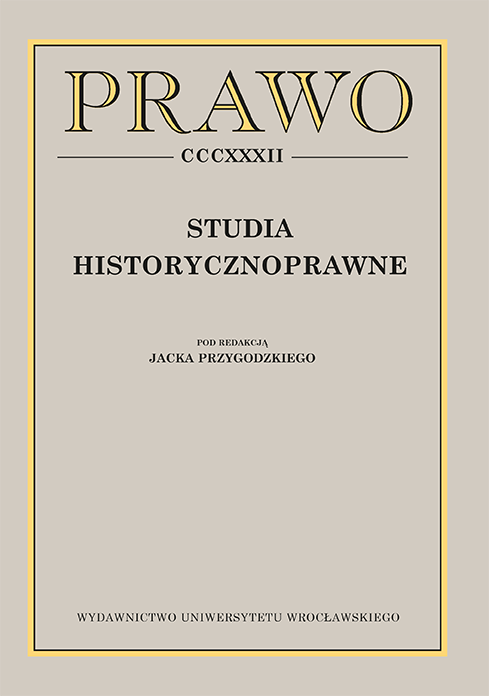

Articles

In 1788, in the face of the deepening crisis of the state and the real threat of losing sovereign existence, an extraordinary Sejm was convened in the Polish-Lithuanian Commonwealth, whose decisions and reforms were to save the independence of the state, while at the same time thoroughly modernising it. This congregation went down in history as the Four-Year or Grand Sejm, which many saw and still see as an appreciation of its great work. One of the actions taken was a profound reform of judicial law, the anachronistic nature of which was a significant cause of the country’s weakness and the problems of its citizens. Ultimately, however, somewhat paradoxically, the glorious and greatest achievement of the assembly — adopting a constitution — resulted in a civil war, a military conflict with a powerful neighbor — Tsarist Russia, and the liquidation of the Polish state.
The aforementioned basic law devoted one of its articles to the judiciary, obliging it to create a new legal code. However, this commitment was never fulfilled. The question of why this happened is still open. The attempt to answer this question is part of the fundamental dispute over the causes of the collapse and liquidation of the state, a discourse that has provoked passionate polemics for decades.
The author made an attempt to take his own position on this issue, based on the results of the undertaken research. He conducted a thorough analysis of exceptionally valuable sources such as the Sejm diaries, which constitute a record of the deputies’ speeches at the forum of the plenary Sejm sessions, similar to modern meeting records. In the actions and attitudes of the nation’s representatives, at the moment of his greatest attempt, he tried to find the key to resolving the dispute.